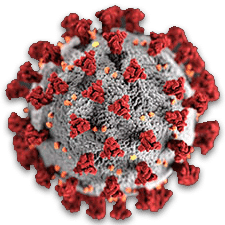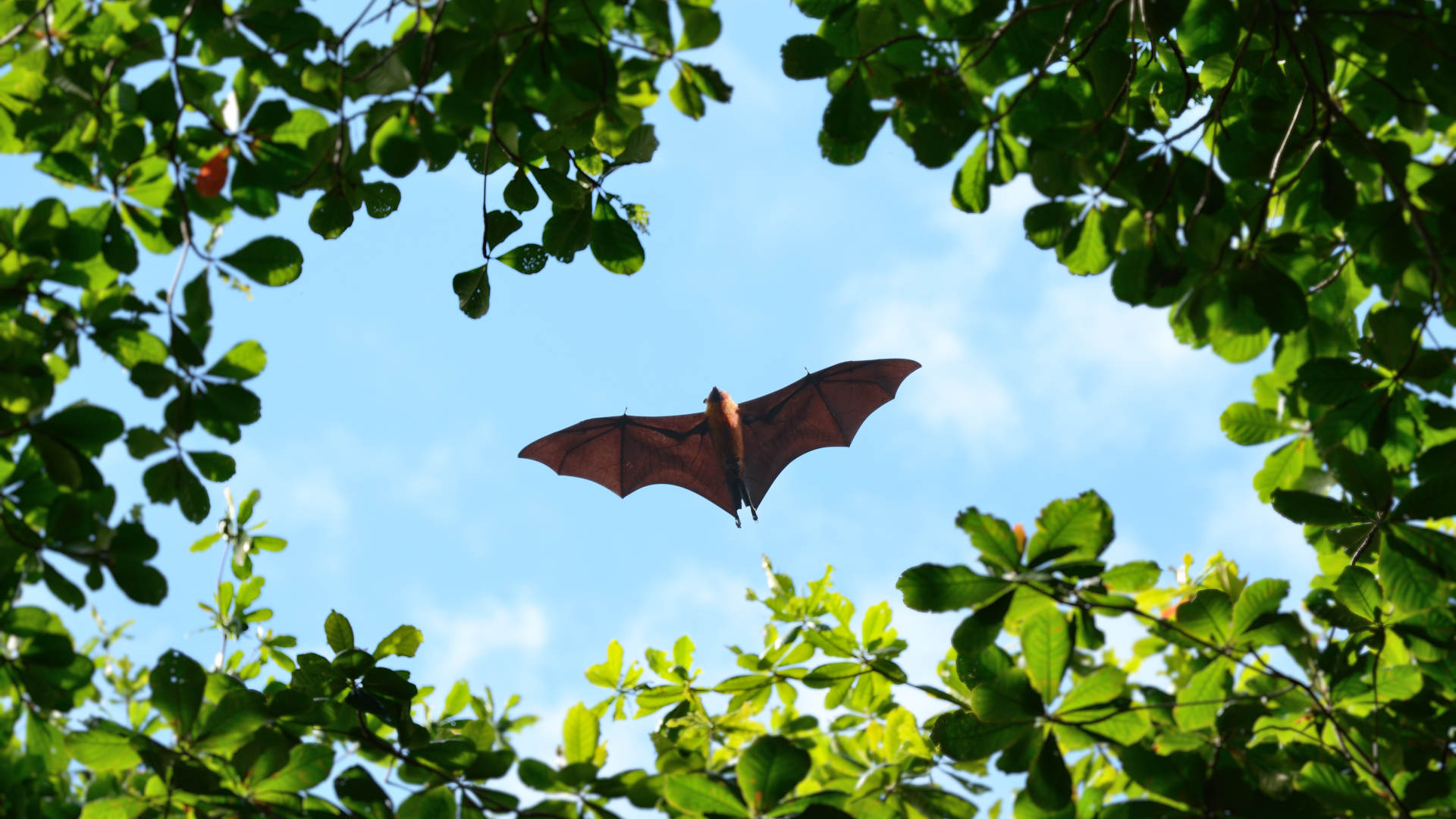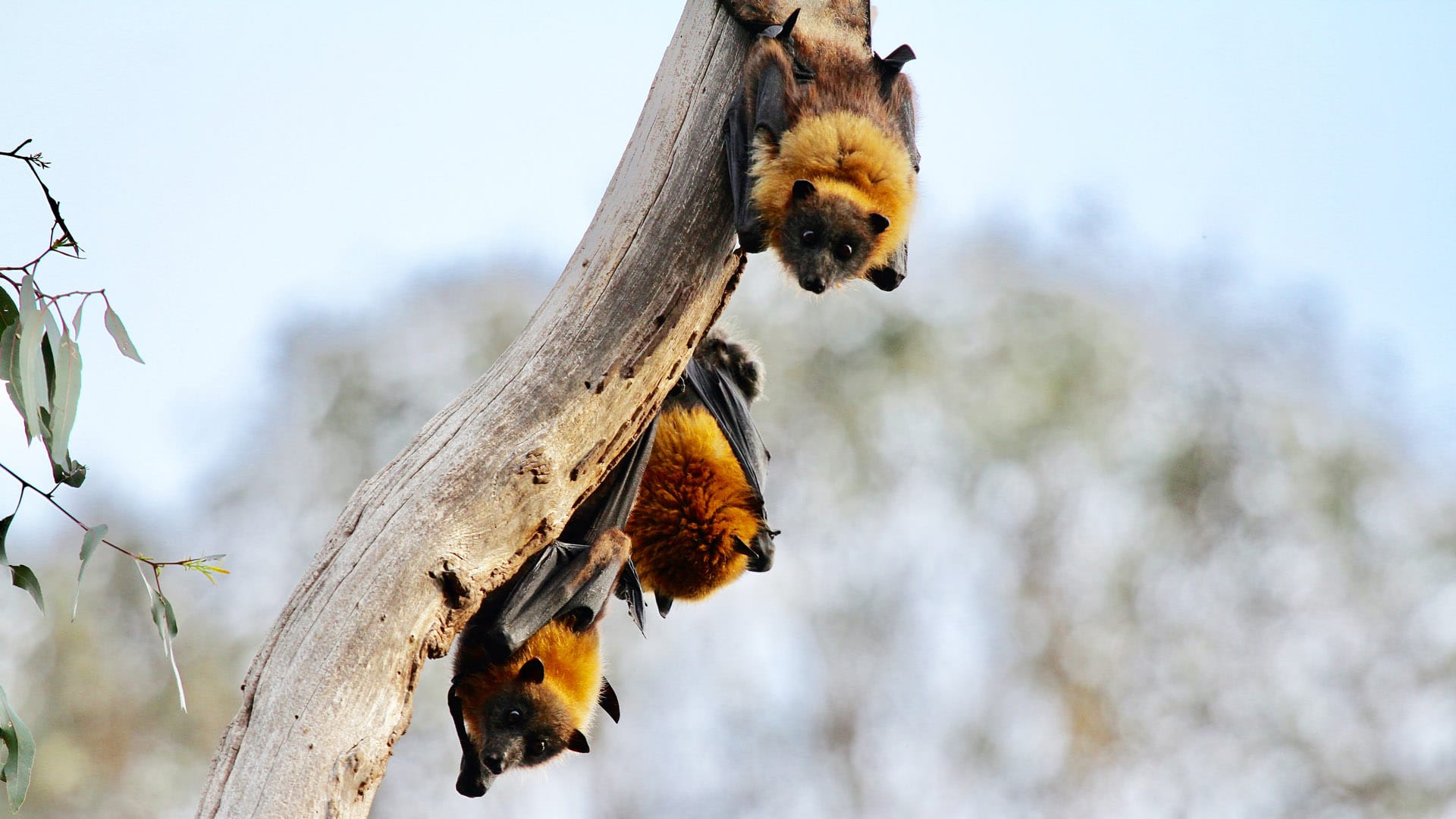By this point, the evidence is clear: The Covid-19 pandemic can be traced back to a bat virus. The same was true for the 2003 SARS coronavirus outbreak. In such outbreaks, we are unlikely to be able to determine whether the spillover happened because someone ate or handled an infected bat, was exposed to a bat’s bodily fluids in a cave or some other way, or came into contact with another animal that had been infected by a bat. Even if human contact with a virus happened in a lab, the virus still would have originally come from a bat. What’s important is that we don’t need to know all of the details in order to take meaningful action.
Bats are known reservoirs for a wide range of viruses, including Marburg filoviruses, Hendra and Nipah paramyxoviruses, rabies, and coronaviruses such as the one that causes MERS, or Middle East respiratory syndrome. Ebolaviruses are strongly suspected to come from fruit bats.
Human activities that put people in close contact with bats, and with their bodily fluids and excrement, offer opportunities for these dangerous viruses to jump from bats to people. Such activities include hunting, consumption, and trade of bats; use of bat guano; tourism of caves where bats roost; and expansion into key bat habitats for a range of other economic activities — from agriculture to mining — with concomitant deforestation that puts people and their domestic animals into closer contact with bats.
As we asked in our recent publication in The Lancet Planetary Health, how long will governments ignore the science that is in front of them? In the paper, we argue for a global taboo whereby humanity agrees to leave bats alone. People should not fear bats, and not try to chase them away or cull them; such actions would only serve to disperse them and increase the odds of zoonotic spillover. Based on the available science, we strongly believe that humanity simply needs to let bats have the habitats they need and live undisturbed.
This would not only lower the chances of another pandemic but would allow the world’s diverse bat species (there are more than 1,400) to continue to provide a range of incredibly important benefits. The ecosystem services bats provide — from insect control (which helps protect agricultural crops from pests and may well help protect us from mosquito-borne diseases) to crop pollination (important for more than 300 fruiting species, for example) — are worth billions of dollars annually.
Prevention of the next pandemic is not the same thing as dealing with one once it has been sparked. The ideas that have been put forward by the World Health Organization and other key institutions have been almost exclusively focused on preparedness and response. These are downstream (albeit vitally important) activities — for example, improving public health systems including data collection; advancing diagnostic and surveillance capabilities; strategic stockpiling of personal protective equipment, or PPE; reinforcing advances in vaccinology and other biomedical interventions; more robust planning for vaccine and PPE equity, and so on.
We strongly believe that humanity must take the simplest, most cost-effective, most common-sense upstream steps to lower the risk of another pandemic. Fixing humanity’s broken relationship with nature — and bats in particular — would diminish the interface where dangerous viruses can move from their normal hosts into people and other animals.
The issues surrounding research focused on collecting viruses from bats are best addressed elsewhere, but it is worth noting that the U.S. government just canceled one of its largest investments in such activities out of biosafety concerns. Our focus is squarely on the range of activities that lead people around the world to interact with bats. By stopping the hunting, eating, and trading of bats, staying out of their caves, keeping livestock away from key bat habitats, and halting the deforestation and degradation of their habitats, we will surely lower the chances of viral spillover. We believe the costs of the requisite changes in human behavior would be relatively small compared to the multi-trillion-dollar costs of another pandemic, keeping in mind that whatever might come next could certainly be far worse than Covid-19.
 |
For all of Undark’s coverage of the global Covid-19 pandemic, please visit our extensive coronavirus archive. |
Bats are eaten in some parts of the world, but when compared with other wildlife species, they do not appear critical to meeting nutritional or food security needs for the vast majority of consumers. By working collaboratively with local communities that today utilize bats, meaningful change is genuinely possible. Among different cultures, many taboos such as those relating to dietary customs originally emanated from ecological or health concerns. Any reassessment of bat interactions should of course be done in close consultation with those communities most likely to be impacted, with compensation being provided by the global community which stands to benefit from any agreed behavioral changes.
Trade and commercial markets involving live birds and mammals more broadly must of course also be carefully assessed and closed down as necessary to prevent pathogen spillovers. Poultry practices that pose unwarranted risks must also be updated. As we’ve noted, “preventing pandemics at the source is the most equitable way to benefit all of humanity.”
We knew enough four years ago to prevent Covid-19, but we did not act. We know even more now.
Steve Osofsky is the Jay Hyman Professor of Wildlife Health & Health Policy at Cornell University’s College of Veterinary Medicine, director of the Cornell Wildlife Health Center, and a Cornell Atkinson Senior Faculty Fellow.
Susan Lieberman is vice president for International Policy at the Wildlife Conservation Society, with more than 35 years of experience at the interface of science and intergovernmental policy.












Comments are automatically closed one year after article publication. Archived comments are below.
At this point B I see that what is important is to take valid measures, because this disease is very dangerous, and it kills easily. My question was to know what are the real strategies to follow to eradicate this disease throughout the world because even if today it has already disappeared, but I don’t think it’s the end.
exactly to protect ourselves against different diseases such as Corona Virus we must look at how to take care of our small animals, avoid eating any kind of meat.
Coronavirus came from a lab in China where gain of function research was taking place. US taxpayer funded, by the way. Research. The. Facts. There has not been one single bat found, dead or living, that was infected with coronavirus.
If this was true, we would have had many many pandemics throughout human existence and humans would not be here today. I also had SARS in 2003.